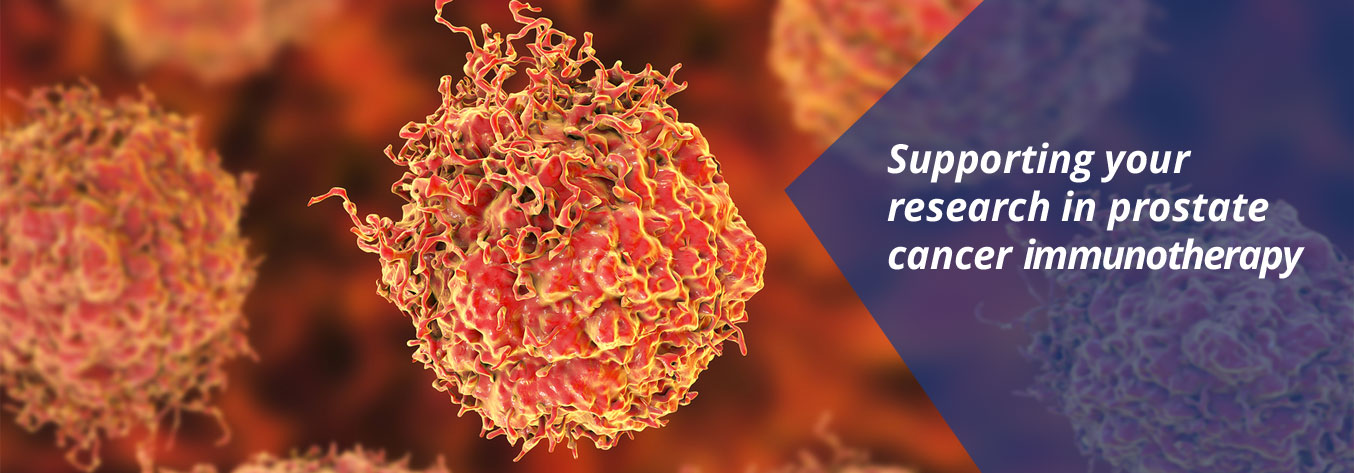Your cart is currently empty!

Personalized Cancer Immunotherapy
Personalized Cancer Immunotherapy
Anogen supports your research in prostate cancer immunotherapy
Current and emerging trends in prostate cancer immunotherapy
Adam Schatz, Badar M Mian
Asian Journal of Andrology (2019) 21, 6–11; doi: 10.41<03/aja.aja_52_17; published online: 24 November 2017
Anogen provides highly specific, sensitive and consistent antibody-based products supporting your research in prostate cancer immunotherapy.
Prostate cancer incidence and treatments
Prostate cancer is the second most common cancer in men. One in seven Canadian men will be diagnosed with prostate cancer in their lifetime. There were 1.3 million new cases in 2018 worldwide.
The most common treatments for prostate cancer are radical prostatectomy, hormone therapy, chemotherapy, and radiation. Researches showed that combinational treatment strategies are needed to improve the survival of patients with advanced prostate cancer and mCRPC. Since the first immunotherapy for prostate cancer, Sipuleucel-T, was approved by FDA in 2010, there has been emerging interest in utilizing immunotherapy in prostate cancer.
Immunotherapy targets
Prostate cancer has slow growth kinetics, which reduces the effectiveness of traditional chemotherapies but may increase the effectiveness of immunomodulatory approaches. The immune environment changes over time as the disease status evolves and in response to treatment. Prostate cancer microenvironment is in general an immunosuppressive condition.
Prostate cancer has slow growth kinetics, which reduces the effectiveness of traditional chemotherapies but may increase the effectiveness of immunomodulatory approaches. The immune environment changes over time as the disease status evolves and in response to treatment. Prostate cancer microenvironment is in general an immunosuppressive condition.
Checkpoint inhibitors that target either cytotoxic T-lymphocyte–associated antigen 4 (CTLA-4) or the programmed death 1 (PD-1)/programmed death ligand 1 (PD-L1) axis have also shown potential in prostate cancer therapy.
Immunotherapy on the market and in clinical researches
There are two primary immune targeting approaches intended to exploit the natural immune system against cancer cells:
There are two primary immune targeting approaches intended to exploit the natural immune system against cancer cells:
(2) immunomodulatory immunotherapy, i.e. immune checkpoint inhibitors and T‑cell regulatory drugs (CTLA‑4 inhibitors, PD‑1, PD‑L1 inhibitors):
Several new PD‑1 (nivolumab, pembrolizumab) and PD‑L1 inhibitors (atezolizumab) are under investigation for clinical effectiveness in advanced prostate cancer.
New research trend in prostate cancer immunotherapy
Immunotherapy combined with other treatment modalities are being considered in a number of trials, in both hormone‑sensitive and castration‑resistant prostate cancer. These combinations include immune checkpoint inhibitors with vaccines, chemotherapy, radiation therapy, focal ablation treatments, surgery, and ADT.
